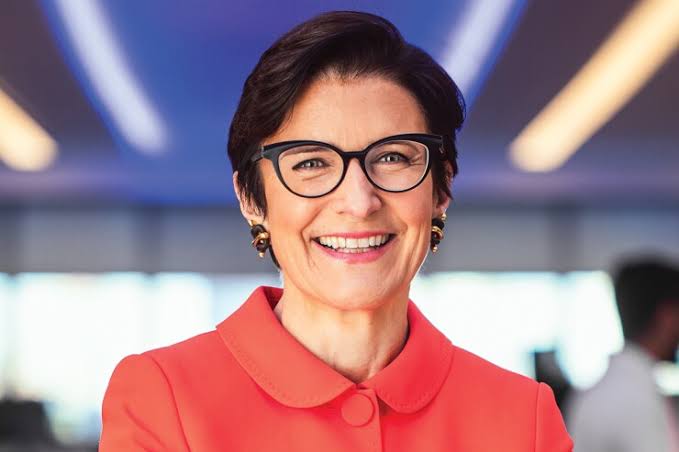Jane Fraser, the Chief Executive Officer of Citi, recently visited Nigeria to discuss the bank’s role in the country and its plans for the future. Citi has been present in Nigeria for 40 years, and Fraser’s visit underscored the bank’s commitment to continuing its operations in the country, despite the challenges that have led other international businesses to exit the market.

Fraser highlighted Citi’s strategy of focusing on institutions with cross-border needs, emphasizing the bank’s role in connecting Nigerian companies with global markets. She noted that this strategy aligns with Nigeria’s evolving economic landscape, where sectors like technology, payments, and telecommunications are rapidly growing. These sectors, driven by digitalization, are seen as the new champions of the Nigerian economy, offering significant opportunities for growth and investment.
One of the key points Fraser discussed was Citi’s commitment to supporting both multinational companies operating in Nigeria and local businesses seeking to expand internationally. She emphasized that Citi’s role is not just about providing capital but also about helping companies manage the complexities of global financial markets. This includes services like foreign exchange hedging, cash management, and trade finance, which are crucial for businesses operating in a volatile global environment.
Fraser also addressed the bank’s recent decision to start commercial banking services in Nigeria, Kenya, and South Africa. She explained that this move aligns with Citi’s focus on serving institutions with cross-border needs and supporting the growth of middle-market clients. These clients, often smaller companies in fast-growing sectors like technology and payments, are seen as the future of the Nigerian economy.
Reflecting on Citi’s 40-year presence in Nigeria, Fraser expressed pride in the bank’s resilience and its ability to adapt to the country’s changing economic conditions. She pointed out that Citi’s continued operations in Nigeria, despite the challenges, demonstrate its long-term commitment to the country and its potential.
Fraser also touched on the importance of disciplined and consistent economic policies by the Nigerian government to unlock the full potential of the private sector. She emphasized the need for ecosystems around key sectors like food, energy, and technology to support the growth of small and medium-sized enterprises (SMEs). According to Fraser, these enterprises are crucial for driving economic growth and creating jobs in Nigeria.
In terms of global connections, Fraser highlighted the importance of integrating Nigeria into global financial flows. She mentioned that Citi is actively involved in facilitating investment flows into Nigeria, with a focus on sectors like food, healthcare, and digital payments. Fraser believes that Nigeria’s young, hardworking population and large domestic market make it an attractive destination for foreign investment, particularly in sectors that are crucial for the country’s development.
On the topic of climate change and energy transitions, Fraser acknowledged the challenges of balancing energy security, affordability, and the transition to cleaner technologies. She stressed that it is essential to invest in scalable, affordable clean technologies that can be implemented in poorer countries. Citi, she said, is committed to supporting this transition by providing financing and helping clients move to cleaner energy sources.
As a female leader on Wall Street, Fraser expressed her commitment to paving the way for more women to rise to leadership positions in the financial industry. She highlighted the importance of having strong female leaders in Citi’s operations in Nigeria and encouraged women to pursue opportunities in the financial sector.
Jane Fraser’s visit to Nigeria reaffirmed Citi’s long-term commitment to the country and its role in connecting Nigeria to the global economy. With a focus on supporting growth in key sectors and helping businesses navigate global financial markets, Citi aims to be a significant partner in Nigeria’s economic development.




